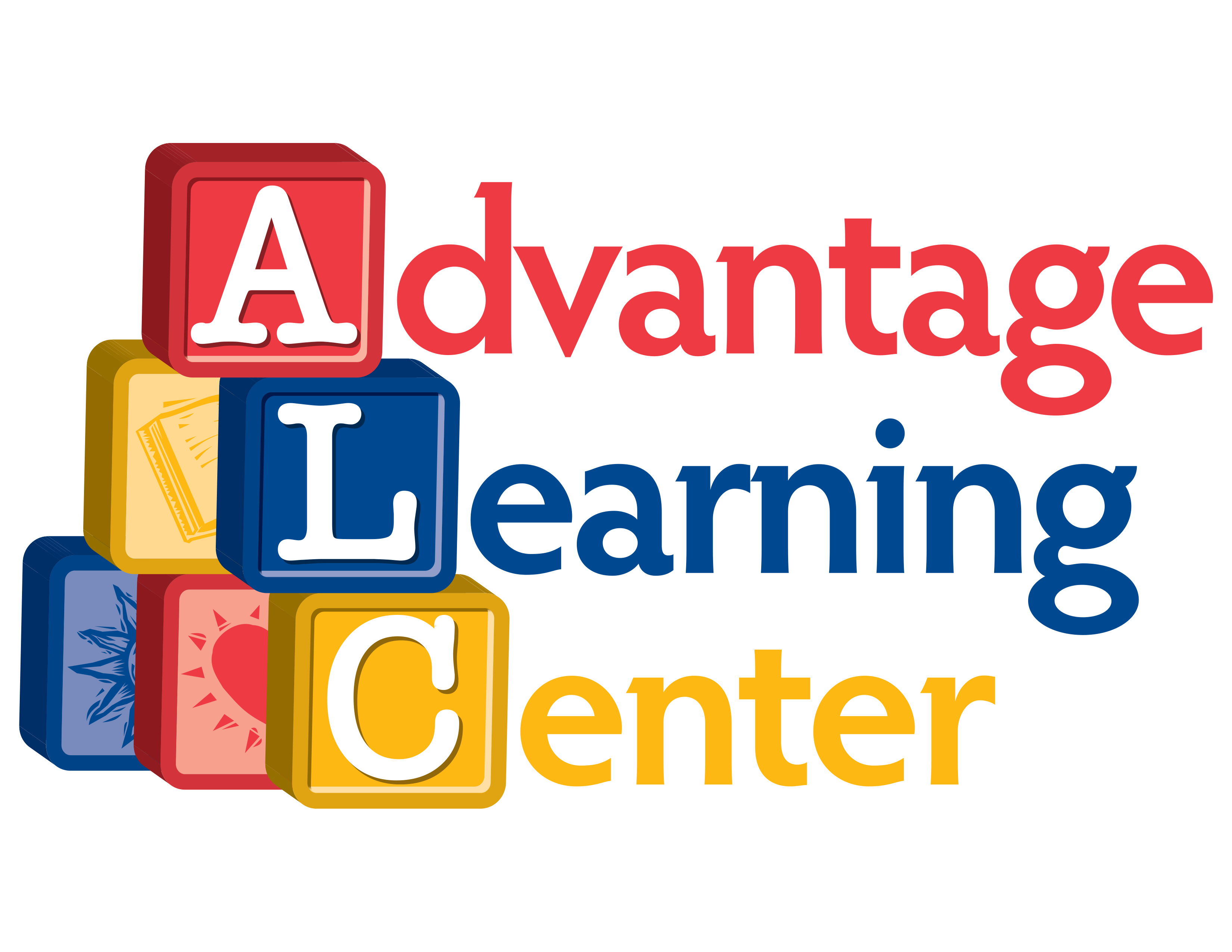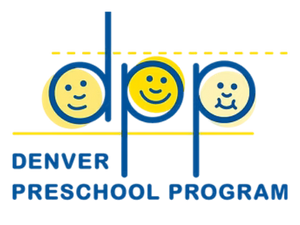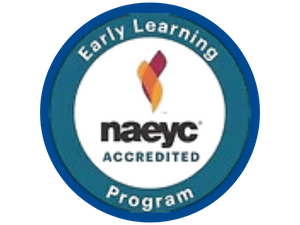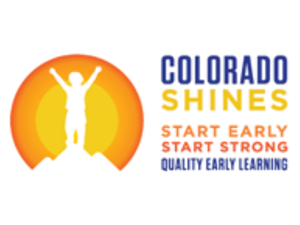Pre-Kindergarten Programs near Denver, CO


Prekindergarten education, often referred to as "pre-K" or “prek”, is an early childhood education daycare program for children typically the year before they enter kindergarten. The primary goal of prekindergarten is to prepare children for the academic and social demands of formal schooling.
Key Aspects of Prekindergarten Education:

Curriculum
Prekindergarten daycare programs focus on a range of developmental areas, including cognitive, social, emotional, and physical development. The curriculum often includes activities that promote literacy, numeracy, language development, and problem-solving skills. It also emphasizes social skills, such as cooperation, sharing, and following directions. The Advantage Learning Center utilizes The Creative Curriculum, a comprehensive, research-based early childhood education framework designed to support the development and learning of young children from infancy through preschool. Developed by Teaching Strategies, LLC, it is widely used in early childhood education programs across the United States, including prekindergarten, Head Start, and child care centers.
The key features of the Creative Curriculum include:
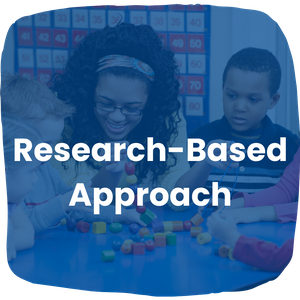
The Creative Curriculum is grounded in research on child development, early childhood education, and learning theory. It aligns with state early learning standards and national best practices, making it a well-regarded framework in the field of early childhood education.
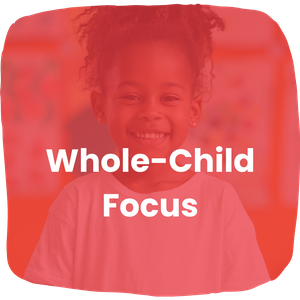
The curriculum emphasizes the development of the whole child, addressing cognitive, social-emotional, physical, and language development. It encourages educators to consider the unique needs, interests, and abilities of each child.
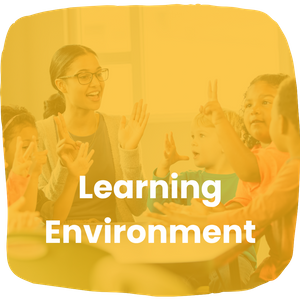
The curriculum places a strong emphasis on the importance of the physical environment at daycare in supporting children's learning. It guides educators in setting up well-organized, engaging, and responsive learning spaces that encourage exploration and independence.
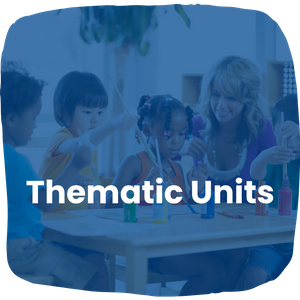
The Creative Curriculum is organized around thematic units or studies that explore topics of interest to young children. These studies are designed to be flexible and can be adapted to the specific needs and interests of the children in the classroom. Each study integrates various learning domains, such as literacy, math, science, and social studies.
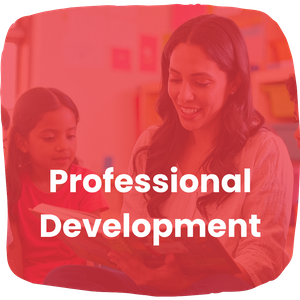
Teaching Strategies offers professional development opportunities for daycare educators using the Creative Curriculum. These resources help teachers effectively implement the curriculum and continually improve their teaching practices.
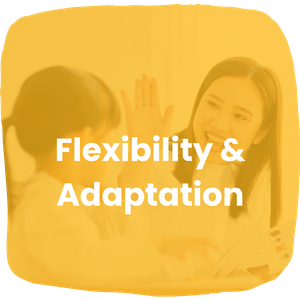
While the Creative Curriculum provides a structured framework, it is designed to be flexible, allowing educators to adapt the content to the specific context of their classroom and the individual needs of their students.
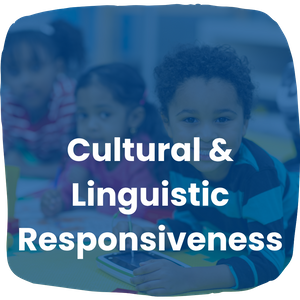
The curriculum is designed to be inclusive and responsive to the diverse cultural and linguistic backgrounds of children. It provides guidance on how to create an inclusive classroom environment that respects and celebrates diversity.
The Creative Curriculum is widely respected for its comprehensive approach to early childhood education. It has been shown to support positive outcomes in children's development and learning, particularly when implemented with fidelity. By focusing on the whole child and emphasizing the importance of play, the Creative Curriculum helps prepare children for success in school and beyond.
Read more about Curriculum at ALC here.

Assessment
Assessment in prekindergarten daycare involves observing and evaluating young children's development and learning to understand their progress and identify their individual needs. It typically includes a combination of formal and informal methods, such as observing children during play, collecting work samples, and using standardized tools. These assessments help educators tailor instruction to support each child's growth in areas like language, cognitive, social-emotional, and physical development. The goal is to guide teaching practices, involve families in their child's learning, and ensure children are on track for success in kindergarten.
Advantage Learning Center uses Teaching Strategies GOLD (GOLD), which is a comprehensive, observation-based assessment system designed for children from birth through kindergarten. Developed by Teaching Strategies, LLC, it is widely used in early childhood education settings to monitor and support children's development and learning across multiple domains. Here's an overview of the GOLD assessment:
Developmental Domains:
The assessment covers nine key developmental and learning areas: social-emotional, physical, language, cognitive, literacy, mathematics, science and technology, social studies, and the arts.
It also includes English language acquisition for children who are dual-language learners.
Observation-Based:
GOLD relies on ongoing observations of children during regular daycare activities. Teachers collect evidence of children's skills and behaviors through notes, photos, work samples, and videos.
This approach allows for a natural and holistic understanding of each child's abilities, as it is integrated into daily routines and activities.
Progress Monitoring:
GOLD helps educators track individual children's progress over time, identifying strengths, areas for growth, and developmental milestones.
The assessment is designed to be used multiple times throughout the year, allowing teachers to monitor and document progress and adjust instruction as needed.
Developmental Continua:
The assessment system uses developmental continua for each domain, outlining expectations for children's abilities at various stages from birth through kindergarten.
These continua help teachers understand where a child is developmentally and what the next steps in learning might be.
Individualization:
GOLD provides data that helps teachers tailor their instruction to meet the unique needs of each child.
By understanding where each child is developmentally, educators can plan activities and interventions that support growth in specific areas.
Family Involvement:
GOLD encourages family engagement by providing clear, accessible reports on children's progress.
Families can be involved in setting goals and supporting their child's learning at home.
Alignment with Standards:
The assessment aligns with state early learning standards and the Head Start Early Learning Outcomes Framework, ensuring that it supports broader educational goals and prepares children for kindergarten.
GOLD is the chosen assessment in Colorado, made affordable to programs like Advantage Learning Center through the Results Matter grant.
Reporting and Data Use:
Teachers and administrators can generate detailed reports from GOLD to inform instructional planning, communicate with families, and support program evaluation.
The data can also be used to identify trends and areas for professional development within a program.
Inclusive of All Learners:
GOLD is designed to be inclusive of children with diverse backgrounds and abilities, including those with special needs and dual-language learners.
The assessment provides strategies for observing and supporting children in a way that respects their individual learning styles and cultural contexts.
Teaching Strategies GOLD is widely recognized for its ability to provide meaningful, actionable insights into children's development. By focusing on observation and naturalistic assessment, it supports a child-centered approach to early education, helping educators create learning environments that foster each child's growth and readiness for school.
Read more about Assessment at ALC here.
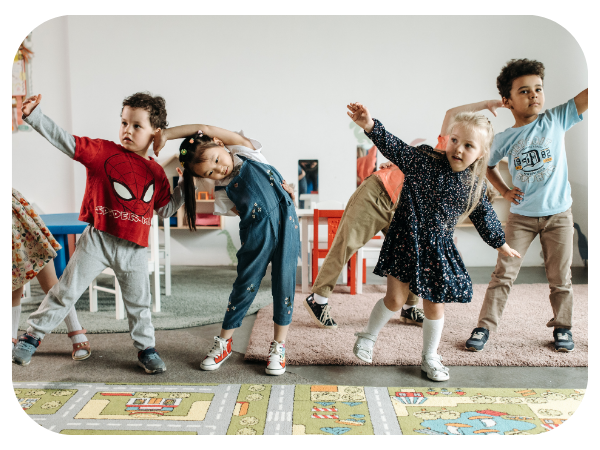
Play-Based Learning
Many pre-K programs use play-based learning approaches. This method recognizes that young children learn best through play, which helps them develop creativity, imagination, and social skills. Structured play activities are often designed to teach specific concepts or skills.
In an article titled “Myth: Children Learn by Sitting”, author Rae Pica explores the research on how young children learn. Rae had this to say about the truth: “The truth here is two-pronged: the research proves that physical activity improves brain functioning, and young children are not yet abstract thinkers, which means they require active, experiential learning. We’ll look at both aspects in this section.” Read the full article here.
Socialization and Emotional Development

Prekindergarten is crucial for helping children develop social skills. Through interaction with peers and adults, children learn to communicate, share, take turns, and resolve conflicts. This socialization is essential for their overall development and readiness for school. Pre-K programs support emotional development by helping children understand and manage their emotions. Teachers provide guidance in recognizing feelings, expressing them appropriately, and developing empathy for others.
The COVID-19 pandemic significantly impacted young children's social development due to prolonged isolation, disruptions in routine, and altered social interactions. With lockdowns and daycare closures, many children experienced reduced opportunities for face-to-face interaction with peers, which hindered the development of important social skills like sharing and conflict resolution. The cancellation of group activities and reliance on digital platforms for interaction further limited their ability to engage in cooperative play and develop friendships. Increased screen time, particularly passive consumption, may have delayed language development and communication skills, as children missed out on the nuanced social cues learned through in-person interactions.
Emotionally, many children experienced heightened levels of anxiety and stress, influenced by the uncertainty of the pandemic and the stress within their families. This led to behavioral regressions, such as increased clinginess or difficulties with separation at daycare drop-offs, as children responded to the disruptions in their environment. Social-emotional skills like empathy and self-regulation, typically developed through interactions with peers, were delayed for some children, making reentry into group environments challenging as social restrictions eased. While some families benefited from increased time together, strengthening bonds and supporting development, others faced heightened stress that negatively impacted children's social-emotional well-being.
The long-term effects of these disruptions vary, with some children quickly adapting as they return to normal social environments, such as prek, while others may require ongoing support to overcome lingering social and emotional challenges. Addressing these impacts involves re-establishing social connections, supporting emotional well-being, and providing opportunities for rich, face-to-face interactions as children continue to adapt in a post-pandemic world. It also requires well-trained, compassionate teachers like those at Advantage Learning Center.

Family Involvement
Family engagement is a critical component of prek education. Parents and caregivers are encouraged to be involved in their child's learning, which can include activities at home, attending school events, and communicating regularly with teachers.
Accessibility and Funding

Advantage Learning Center participates in Colorado’s Universal Preschool program. The Universal Preschool (UPK) program in Colorado is a statewide initiative aimed at providing funding for high-quality prek education to all children in the state. Designed to ensure that every child, regardless of background or family income, has access to early childhood education, the program is primarily available to children who are 4 years old in the year before they enter kindergarten. The program is funded through a combination of state and federal resources, significantly supported by Proposition EE, which increased taxes on nicotine products to help fund preschool education. This funding allows for at least 10 hours of prek per week for eligible children, with the possibility of additional hours depending on local resources and family needs.
The UPK program is offered in a variety of settings, including public schools, private preschools, child care centers like Advantage Learning Center, Head Start programs, and community-based organizations, giving parents the flexibility to choose the environment that best suits their child’s needs. Participating programs must meet quality standards set by the state, which include guidelines on teacher qualifications, class size, and curriculum, emphasizing play-based and developmentally appropriate learning experiences that support children’s cognitive, social-emotional, and physical development.
Parents choose the Advantage Learning Center for their child’s UPK year if they need full time daycare and want to take advantage of the convenience, trust, and quality that ALC represents. ALC is open 6:30 am – 6:00 pm Monday through Friday, including during public school winter and spring breaks (closed for federal holidays). The 10+ hours of funded UPK time is integrated with the normal classroom schedule at ALC, so parents don’t have to worry about transportation to and from public UPK schools. Advantage Learning Center has a stellar reputation for high quality education parents can trust for over 28 years, including accreditation by the National Association for the Education of Young Children (NAEYC).
One of the primary goals of Colorado's UPK program is to reduce disparities in early childhood education by providing inclusive and accessible pre-k for all children, with a focus on supporting those from historically underserved communities. The program began rolling out in phases, with full implementation targeted for the 2023-2024 school year. Administered by the Colorado Department of Early Childhood (CDEC), the UPK program is expected to have a significant impact on children's readiness for kindergarten, helping to close achievement gaps and provide a strong foundation for lifelong learning. It also offers economic benefits to families by reducing the cost of daycare and supporting parents in balancing work and family responsibilities. Through these efforts, Colorado’s UPK program reflects the state’s commitment to ensuring that every child has the educational opportunities they need to succeed.
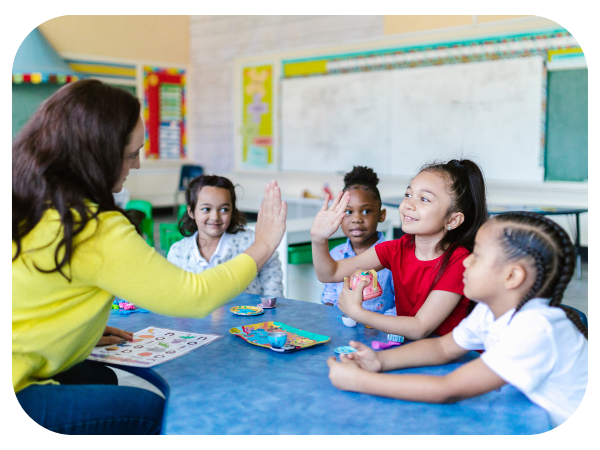
Impact on Long-Term Outcomes
Research has shown that high-quality pre-k education can have long-lasting positive effects on children's academic performance, social skills, and behavior. It can also help reduce achievement gaps between children from different socioeconomic backgrounds.
Prekindergarten education is seen as a critical stage in a child's development, laying the foundation for future academic success and well-being.
What Our Lakewood Families Are Saying


My baby girl is in the infant room, and she LOVES her teachers. She is so happy to go in every day. They serve good food, and they taught her to wave and blow kisses. I love it when they do arts and crafts and send me pictures. Overall, I'm very happy with how things are going!"
- Hayley

Love this place. Have had my kids here for 6 months. I know they are safe, happy, and learning a ton. Staff and leadership are very approachable and collaborative. Teachers really care for the kids, and I am amazed by their patience and kindness. My older daughter is pre-k and she has learned so much. I highly recommend ALC."
- Shahed

This has been a great place for our kids. One of the best businesses that I have ever dealt with. The teaching staff is dedicated to my child's learning, and the admin people do a great job."
- Skip
Schedule Your Tour
Contact the Advantage Learning Center today to get started on your child’s best pre-k year possible.
